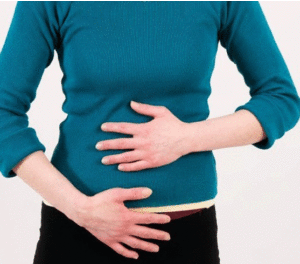Chronic, long-term or recurring, constipation is more challenging to treat than common simple constipation.

Constipation is a common disorder affecting approximately 1 out of every 6-7 people worldwide, and annually leading to more than 1.5 million healthcare provider visits in the United States alone. People can experience short-term constipation as a result of medication use, dietary changes, or even travel. However, most cases of constipation are a chronic or long-lasting condition.
People who are constipated may experience any one or more of the following:
- reduced number of bowel movements (BMs) (Less than three BMs per week is considered low. However, people have different ranges of what is normal.)
- passage of hard or pellet-like BMs
- having to strain or excessively push to start or complete a BM
- the patient’s feeling as though they did not empty completely after a BM
- a sensation that the necessary muscles will not relax enough to allow stool to be passed
- needing to change positions on the toilet, push around the groin, or manually pick BMs out of the rectum.
Most of us experience constipation from time to time. Illness, inactivity, travel, medications, and other circumstances may lead to some irregularity in our bowel movements. This can be seen as: infrequent or hard stools often accompanied by straining, sensations of incomplete evacuation, and abdominal discomfort or even pain. For most people, these symptoms are short lived and do not have a major impact on life. For some, abrupt onset of constipation may be the first sign of a bowel disease such as obstruction (e.g., tumor, adhesion) or inflammation (e.g., diverticulitis, Crohn’s disease).
But, chronic constipation that is long-term or that keeps coming back requires more effort to diagnose and treat.
If you have been dealing with chronic constipation, it’s time to talk with your healthcare provider to determine the best treatment options.
Learn more about
- Chronic Constipation- An Overview (Publication)
- Chronic Constipation
- how to talk to your healthcare provider
Symptoms, Evaluation, Causes and Treatment of Chronic Constipation
Watch Dr. Kimberly Harer discuss the symptoms, evaluation, causes and treatment of constipation during IFFGD’s 2020 NES Program














